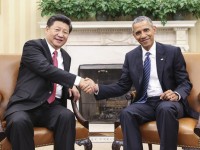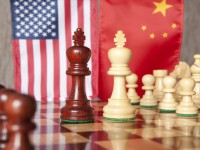Xenia Wickett, U.S. Project Director, Chatham House
Oct 14, 2015
It is hard to avoid the U.S.-China bipolar narrative, although this over-simplistic analysis misses other measures of global power and insecurity. Xenia Wicket argues there is no single paramount power, but a variety of nodes of state and non-state actors.
Han Liqun, Researcher, China Institutes of Contemporary International Relations
Sep 30, 2015
Whether or not the struggling talks produce an agreement soon, the US and China do not need to be defensive about the TPP. Instead, they should open an obstruction-free channel for dialogue, through which both countries can use anticipatory diplomacy to enhance mutual trust.

Tao Wenzhao, Honorary Member of the Chinese Academy of Social Sciences; Fellow, CASS Institute of American Studies
Sep 30, 2015
New agreements on collaboration in such areas as agriculture, grain production, civil aviation, high-speed railways, law enforcement, and military-to-military relations will further deepen interdependence. Xi’s visit has increased mutual confidence, reduced mutual suspicion, with achievements that made it a milestone in bilateral relations.

Doug Bandow, Senior Fellow, Cato Institute
Sep 14, 2015
Political campaigns generally are not well-suited for the thoughtful discussion of complex, nuanced international issues. Lately, China has been a target of GOP pre-election attacks, and it should be known that there is a difference between coming across as tough, and bungling diplomacy all together.
Sun Chenghao, Fellow, Center for International Security and Strategy of Tsinghua University; Munich Young Leader 2025
Sep 09, 2015
Although US willingness to engage China in the international system seems to be diminishing, the Chinese president’s upcoming state visit is an opportunity to get a new type of major-country relationship back on track. This will accumulate more positive energy if both countries seek functional cooperation in deferent spheres by practical and systematic means.
Han Liqun, Researcher, China Institutes of Contemporary International Relations
Sep 01, 2015
Whether or not the struggling talks produce an agreement soon, the US and China do not need to be defensive about the TPP. Instead, they should open an obstruction-free channel for dialogue, through which both countries can use anticipatory diplomacy to enhance mutual trust.
Zhao Weibin, Researcher, PLA Academy of Military Science
Aug 21, 2015
The view of mainstream Americans about China is the key to formulating any US grand strategy toward Beijing. Today, while some domestic politics has negative effects, we need more dialogues to enhance transparency and control third-party factors with prudent management and precaution.
Yin Chengde, Research Fellow, China Foundation for International Studies
Aug 12, 2015
Washington’s goals in the Trans-Pacific Partnership may have been economic at first, but the most recent negotiations suggest the trade agreement has become a tool of the US ‘pivot to Asia’. A symptom of its quest to contain China, it’s an unworthy goal for the US – and it’s doomed to fail.
Hugh Stephens, Distinguished Fellow, Asia Pacific Foundation of Canada
Aug 11, 2015
Support for Chinese investment has been declining in Canada, particularly because of the concentration of investments in the resource sector. However, attitudes toward Asia can change, depending on the context, the question, and extraneous elements such as negative media coverage of domestic and international events.
Back to Top

- China-US Focus builds trust and understanding between the U.S. and China through open dialogue among thought leaders.
- Our Offerings
- Topics
- Videos
- Podcasts
- Columnists
- Research Reports
- Focus Digest
- Stay Connected
-
Thanks for signing up!
- Get the latest stories from China-US Focus weekly.